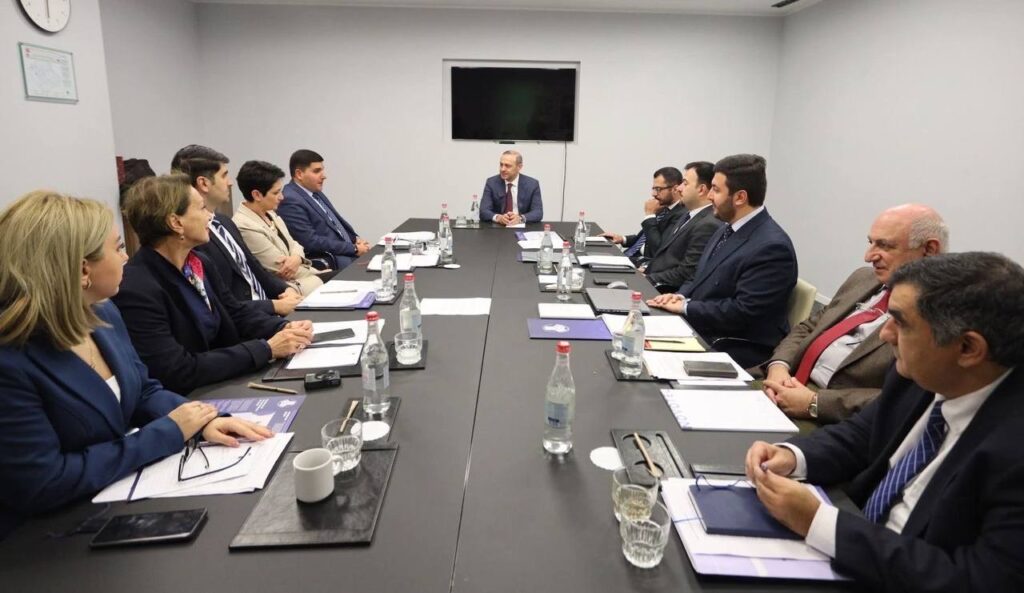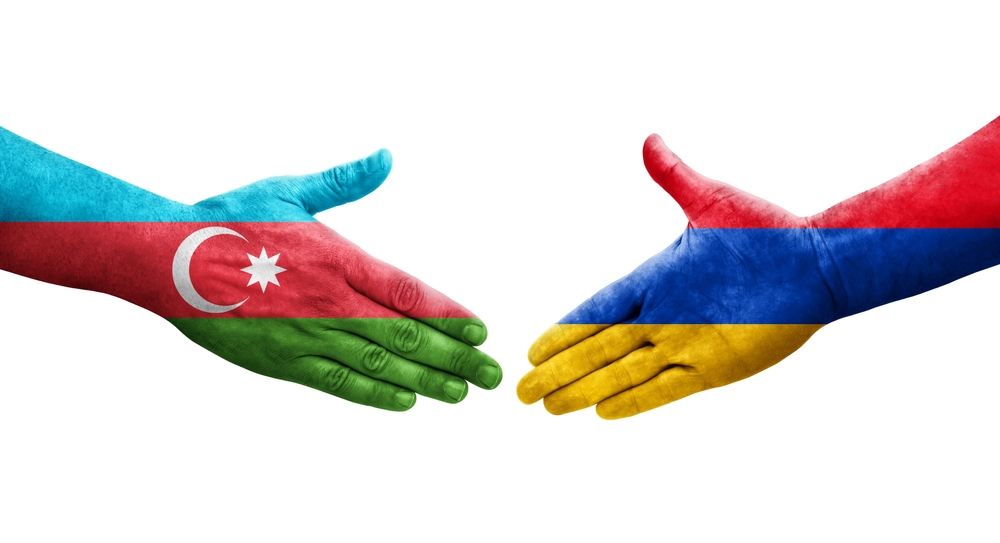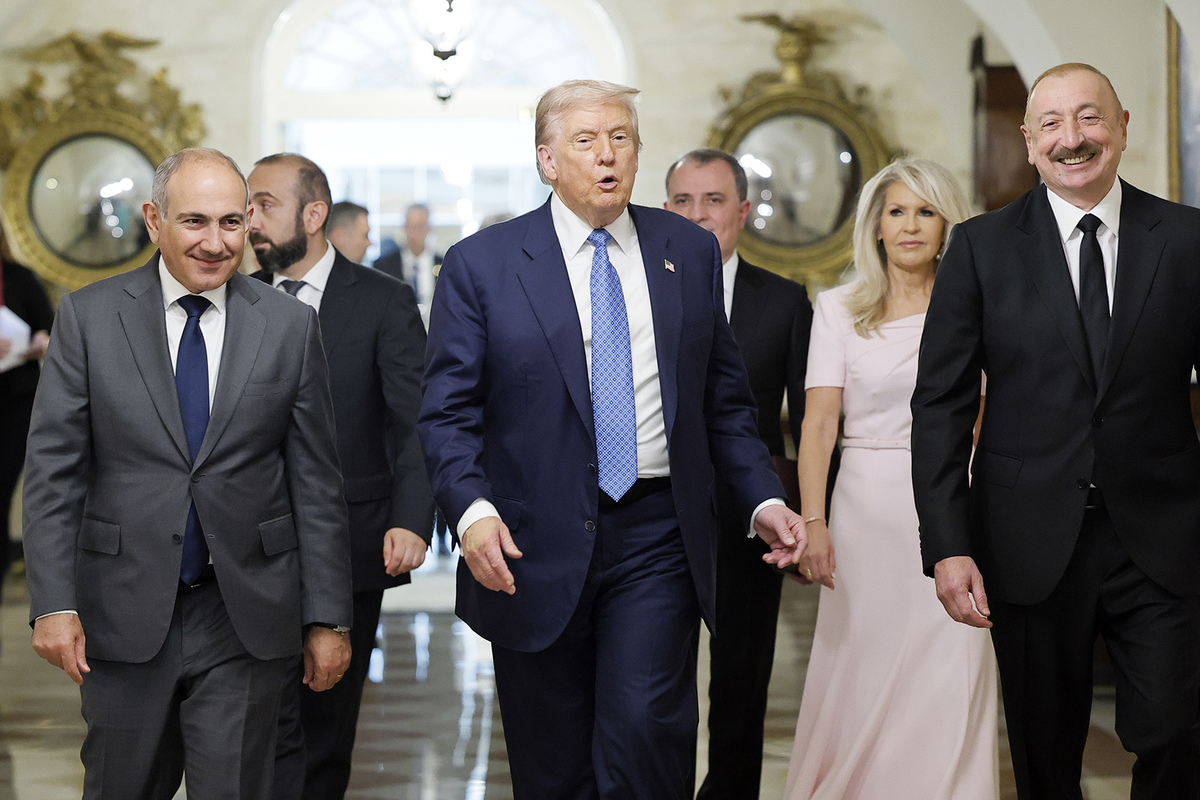'We won’t become best friends, but Azerbaijanis’ perception will change' – Armenian political analyst
Azerbaijani experts visit Yerevan
A recent meeting between representatives of Armenian and Azerbaijani civil society has sparked heated debate in Armenia. Social media users and some experts argued that “the real representatives of Azerbaijani civil society are either in prison or have left the country, and the people who came to Armenia are ‘experts’ close to the authorities.”
Particular outrage arose over the presence of Dilyara Efendiyeva in the Azerbaijani delegation. In Armenia, she is known for participating in the blockade of the Lachin corridor from December 2022, which cut off Nagorno-Karabakh from Armenia. More than 100,000 Armenians lived under harsh blockade conditions for around ten months, and the road was blocked by Azerbaijani civil society members who called themselves “eco-activists.”
“To find representatives of Azerbaijani civil society who meet all criteria and are free, it could have taken years, maybe even decades,” said political analyst Samvel Meliksetyan of the Center for Security Policy Studies, speaking on a local channel.
Meliksetyan also took part in the meeting, noting that the bilateral format is important as it “allows participants to freely discuss any topic without restrictions.”
He said discussions with Azerbaijani colleagues covered the normalization process and humanitarian issues, including the fate of Armenians imprisoned in Baku and the concerns of Azerbaijanis about missing persons from the first Nagorno-Karabakh war.
“In Azerbaijan and other authoritarian states, close links between civil society and authorities allow issues to be discussed and resolved more quickly. There is also an opportunity to influence political decisions,” he added.
Meliksetyan did not respond to criticism over Efendiyeva’s participation, in order to avoid jeopardizing further contacts, but expects reciprocal visits to continue. Another discussion participant, political analyst Areg Kochinyan, explained that the composition of the delegations was not pre-discussed.
- ‘Hearings turned into sham’: Ruben Vardanyan drops lawyer
- Pashinyan-Aliyev meet in Copenhagen while Armenian parliament issues statement in support of peace
- “Aliyev speaks of a “corridor” and calls Armenian society “sick” after the US meeting” – opinion from Yerevan
“Meetings foster mutual understanding”
Experts from Armenia and Azerbaijan held a roundtable in Yerevan on 21–22 October. The Armenian delegation included Areg Kochinyan, Boris Navasardyan, Naira Sultanyan, Narek Minasyan, and Samvel Meliksetyan. Azerbaijan sent Farhad Mamedov, Rusif Guseynov, Ramil Iskenderli, Kamala Mamedova, and Dilyara Efendiyeva. The group also met Armenia’s Security Council Secretary, Armen Grigoryan.

The Center for Security Policy Studies said the initiative aims to promote a peaceful agenda based on the agreements reached at the Washington summit on 8 August:
During the discussions, participants addressed a wide range of issues affecting both societies. They explored prospects for the Armenian-Azerbaijani peace process and discussed humanitarian matters. They also considered economic and logistical opportunities if relations were normalized. In addition, they outlined specific steps to build trust.
The group drafted a joint action plan and discussed concrete measures for future cooperation.
At the conclusion of the meeting, the participants confirmed that they would continue joint initiatives. These initiatives aim to deepen mutual understanding and support the establishment of lasting peace in the region, the statement said.
Commentaries
Political analyst Samvel Meliksetyan said the organisers of the meeting are aware of the challenges posed by restrictions on rights and freedoms in Azerbaijan. At the same time, he emphasised: “We cannot change the realities of Azerbaijan.”
According to Meliksetyan, “there has never been a real dialogue between civil societies before.” He argued that authorities previously “guided and restricted” participants in such meetings.
“If truly independent NGOs from Armenia and Azerbaijan met, they criticised the authorities. Their discussions boiled down to: we are good, you are good, this conflict is wrong, we eat tolma, you eat tolma, and so on. What was the result? There was no result.”
He believes that experts in earlier dialogues were far removed from political realities. By contrast, engaging with experts close to the Azerbaijani authorities offers the potential to influence policy decisions.
“After these discussions, you notice their impact reflected in political statements. Analysts’ views and interview tones change as well. Of course, the Azerbaijani authorities actively back this, because without their political will, nobody can alter the country’s rhetoric.”
Meliksetyan noted that in Azerbaijan, people perceive any thaw as a “clever Armenian game.” They also expect “revanchism” or territorial claims from Armenia.
He suggested, however, that the recent visit to Yerevan may have helped shift Azerbaijani perceptions. He cautioned, though, that these contacts cannot affect all participants equally.
“Meetings cannot change the situation so that we become best friends or fully share each other’s views. Given the specifics of our societies, the legacy of conflict, and the results so far, achieving an ‘absolute recovery’ in relations is impossible right now. This is a matter for the future. For now, we need to focus on a political settlement. Armenia and Azerbaijan have a long path of normalization ahead. At the same time, we are seeing positive momentum and small achievements.”
Among the tangible steps, Meliksetyan highlighted that Azerbaijan decided to lift restrictions on cargo transit through its territory to Armenia, which marks a notable improvement.
Azerbaijani experts visit Yerevan




















